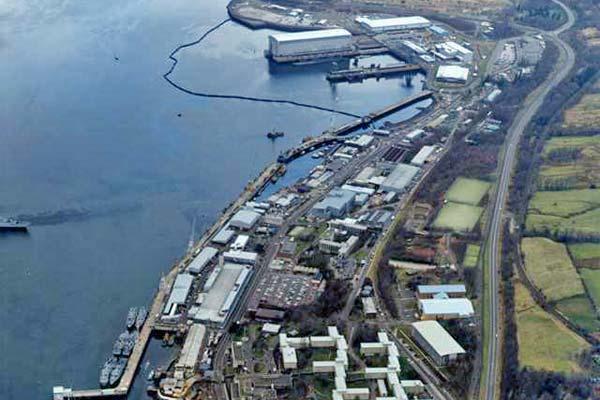The White House cautiously expressed concern this week that the fallout from Brexit could lead to Scotland's independence from the United Kingdom and shutter a Trident nuclear submarine base that plays a key role in NATO deterrence against Russia.
When asked about the fate of Her Majesty's Naval Base Clyde at Faslane on Scotland's west coast, White House Press Secretary Josh Earnest said he could only hope that Scotland, where nationalists have long argued for closing the sub base, would choose to remain in the U.K.
At a press briefing Wednesday, Earnest noted that Scotland voted in a 2014 referendum against independence. "We made clear at the time that, again, that was a decision for voters in Scotland to make," he said.
"But the United States' view has been and continues to be that a united U.K. is in the best interest of the United States. It makes them a stronger partner. It makes them more effective in contributing to the NATO alliance that's the bedrock of our national security," Earnest said.
However, Scotland's First Minister Nicola Sturgeon was already drawing up plans for a second independence referendum following the U.K.'s vote last week to leave the European Union, the so-called "Brexit."
"The significant and material change in circumstances" following Brexit, which was opposed by 62 percent of voters in Scotland, made another independence vote inevitable, Sturgeon said.
"It is, therefore, a statement of the obvious that a second referendum must be on the table, and it is on the table," she said.
Currently, Britain's four nuclear Vanguard-class ballistic missile submarines armed with Trident missiles -- HMS Vanguard, Victorious, Vengeance, and Vigilant -- are based at Faslane on the River Clyde, and all of its nuclear warheads are stored at Coulport about eight miles away.
There are no alternative sites for Faslane and Coulport in England, according to George Washington University analyst Hugh Gusterson, and building alternative sites and coming up with replacements for the aging Trident subs would cost upwards of $20 billion and take possibly 20 years.
Writing in the Bulletin of The Atomic Scientists, Gusterson said that a "British parliamentary report in 2012, written in response to increasing concerns that Scotland might secede from the United Kingdom, concluded a suitable base to replace Faslane and Coulport would be "highly problematic, very expensive, and fraught with political difficulties."
On a visit to Faslane and a tour of HMS Vigilant in January, British Defense Secretary Michael Fallon touted Britain's nuclear deterrent as a mainstay of NATO.
"It has never been more needed than now," Fallon said. "We needed it in the Cold War and we need it even more now in a more unpredictable and more dangerous world."
Fallon scoffed at the suggestion of Labor Party leader Jeremy Corbyn that Britain should scrap the Tridents and send the subs out on patrol without nuclear weapons.
"That's like making imitation rifles -- those would be pointless patrols," he said. "If you are going to have a deterrent, you have to be prepared to use it."
But whether Britain maintained the deterrent hinged on the fallout from Brexit.
At a forum on Brexit this week, Council on Foreign Relations President Richard Haass gave a gloomy forecast.
"Actually, at the risk of sounding melodramatic, I do believe that this is the beginning of the end of the United Kingdom. To me it's a question of when and not if Scotland has a second referendum, and this time it will almost certainly pass, based on the argument that it is more important to be in Europe than in the U.K."
Haass said that the question of Scotland and "whether it will go off on its own as an independent country would raise fundamental issues, for example, about the ability of the use of ports for our nuclear -- for submarines carrying nuclear weapons. So I think it raises lots of defense-related issues."
--Richard Sisk can be reached at Richard.Sisk@Military.com.
Related Video:






























